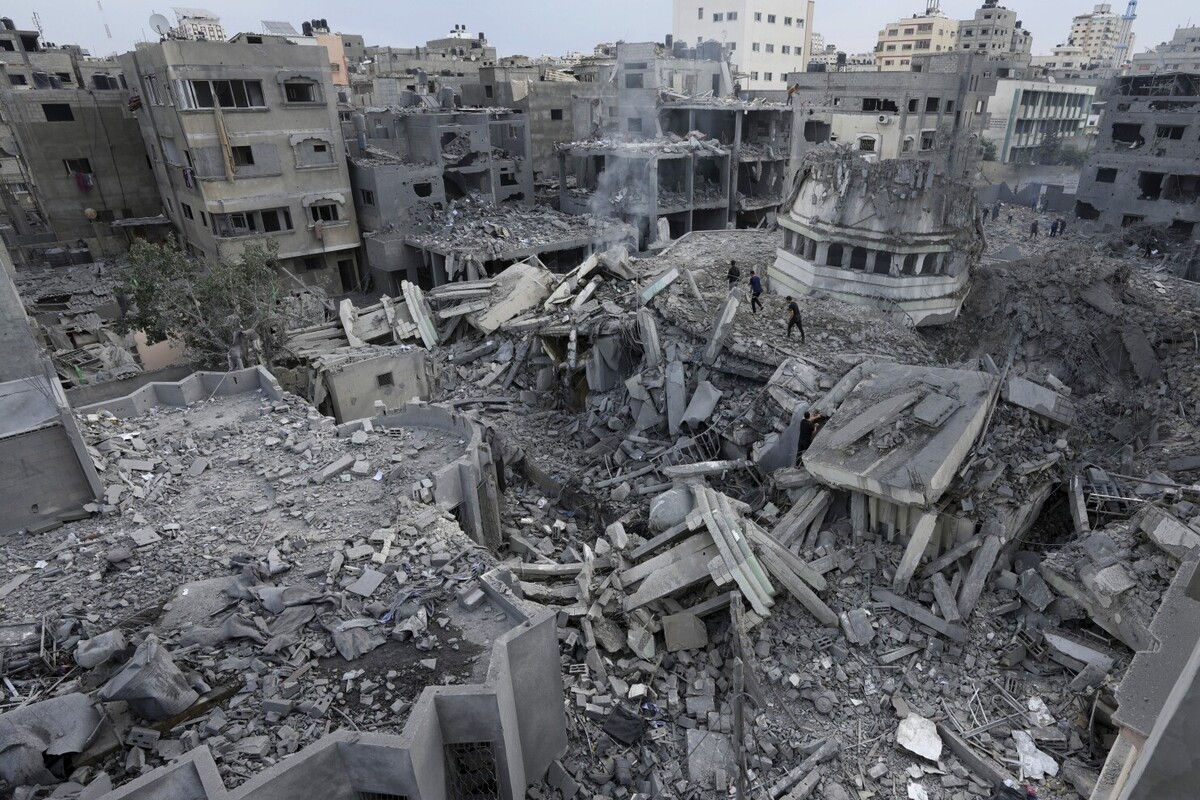11 killed, 11 injured in Israeli airstrikes on Lebanon
Eleven people were killed, and 11 others injured in Israeli airstrikes on southern and eastern Lebanon, media reported.
As the conflict between Israel and Hamas in Gaza reaches a critical juncture, the recent actions and statements of key players have intensified the urgency for a diplomatic solution.

Representation image (AP Photo/Adel Hana, File)
As the conflict between Israel and Hamas in Gaza reaches a critical juncture, the recent actions and statements of key players have intensified the urgency for a diplomatic solution. The relentless bombardment of southern Gaza by Israeli warplanes and artillery, following the collapse of a tenuous truce, paints a grim picture of escalating hostilities. Against this backdrop, French President Emmanuel Macron expressed concern and then headed to Qatar to help restore the truce while Israel conveyed its conditions for a postwar Gaza, underscoring the intricate web of regional dynamics that demand immediate global attention. Mr Macron’s proactive engagement in seeking a new truce and his visit to Qatar reflect France’s deep concern over the resumption of fighting in Gaza. His emphasis on efforts to obtain a lasting ceasefire and the release of hostages highlights the need for diplomatic initiatives beyond the immediate actors in the conflict. His call for clarity on Israel’s goals towards Hamas adds a crucial dimension to the discourse, urging a deeper understanding of the motivations guiding the military actions.
Simultaneously, Israel’s call for a buffer zone on Gaza’s border, communicated to Arab states, including Egypt, Jordan, and the UAE, introduces a potential framework for the post-war landscape. The proposal, part of broader security plans for Gaza, aims to prevent future attacks and has been met with mixed reactions. Arab states, the US and others have expressed concerns about any plan reducing Palestinian land, emphasising the intricate diplomatic balancing act required to address the security needs of Israel without further disenfranchising the Palestinian population. The juxtaposition of these diplomatic efforts and military actions on the ground underscores the complexity of the Israel-Hamas conflict. The devastation caused by the airstrikes and artillery barrages adds a human dimension to the discourse, with the Gaza health ministry reporting a rising death toll and a growing number of wounded. The immediate humanitarian crisis necessitates global intervention to ensure the delivery of aid to those affected and the protection of civilian lives.
The call from US Vice President Kamala Harris for the reunification of Gaza and the Israeli-occupied West Bank under one governing entity adds another layer to the puzzle. While such a proposition may offer a pathway for long-term stability, it introduces questions about the feasibility and practicality of reunification amidst deeply entrenched historical and geopolitical complexities. In the face of this multifaceted crisis, the international community’s challenge is to bridge the gap between diplomatic discourse and on-the-ground realities. The complexities presented by Mr Macron’s diplomatic efforts, Israel’s security proposals, and Ms Harris’s call for reunification demand a holistic and inclusive approach. The urgency for an immediate ceasefire and concerted diplomatic initiatives cannot be overstated, as innocent lives continue to be caught in the crossfire. It is a critical moment for global leaders to rise above political divides and work collectively to forge a path towards lasting peace in Gaza.
Advertisement
Advertisement